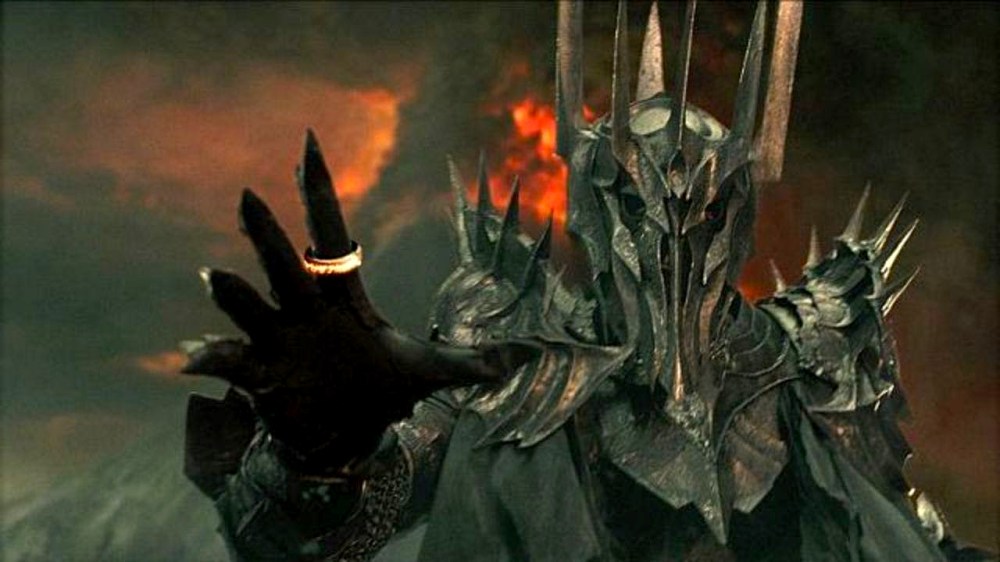Earlier this month, Twitter blew up when an account under the name of “Thulêan Perspective” tweeted about “The Lord of the Rings” movie franchise, claiming that a “woke” version made today would have made the films much, much worse.
Reminder that if “The Lord of the Rings” films had been made today Aragorn would have been a woman (but Arwen still a she-Elf), Frodo & Sam would have been gay, Gandalf black & the only white male actors in the entire cast would have been Denethor, Gríma & Saruman.#Wokeness pic.twitter.com/OTzdDH62w9
— Thulêan Perspective (MYFAROG) (@WargarW) January 3, 2022
The tweet was ludicrous and, initially, I thought it was just the incoherent ramblings of an angry white supporter of former President Donald Trump. It fits with the usual kvetching about how a changing world means that stories might somehow look different from the ones he grew up watching as filmmaking diversifies.
He is like many white nationalists in America — but one whose work I had once admired.
Then I realized that the person tweeting it was Varg Vikernes, the infamous Norwegian black metal musician. For a while, I considered myself a fan of his, back when I was an angry teenager attending what I considered a repressive Christian high school. Vikernes founded the Norwegian black metal band Burzum, a name taken from the “Lord of the Rings” books. But he has become better known for his crimes of setting churches in Norway on fire and murdering fellow Norwegian black metal musician Euronymous of the band Mayhem, which sent him to prison.
Vikernes is also an avowed neo-Nazi who was convicted in France for inciting racial hatred. He also celebrated Trump’s victory as “not as much a victory for whites as it is a loss for the mainstream media and the established order.” These days, he seems to think Trump is a “puppet” controlled by the Jews. So in other words, he is like many white nationalists in America — but one whose work I had once admired.

Oftentimes people become disillusioned when they learn that their heroes are not all they believe they are. My feeling toward Vikernes and other white supremacist metal musicians is quite the opposite. The fact that it wasn’t an act, that he actually lives the aesthetic he adopted onstage, viscerally repulses me and makes me wonder how I could have been so ignorant to have enjoyed it.
When I texted my fellow metalhead friend from high school about Vikernes’ recent rant, it turns out we both have come to a consensus: There, but for the grace of God, go I. Growing up in suburbia made the genre’s satanic imagery seem subversive when I first discovered it. Exchanging burned CDs among friends in my Christian school library felt like trading contraband. That allure is powerful for the lonely and repressed.
My friend and I agreed that had we not found community or meaning elsewhere, we could have easily fallen under the same toxic spell of white nationalism, chauvinism and hate that Vikernes espouses. We also agreed that our time both in the metal community and at a strict conservative Christian school left us attuned to how alienated young men could trade their black T-shirts, leather and corpse paint for a red hat (or fur cap with horns) and raid the Capitol on Jan. 6. (It didn’t surprise me when Jon Schaffer, a frontman for the power metal band Iced Earth, was arrested for taking part in the insurrection.)
As my friend Kim Kelly has written, while much of metal is either apolitical or vehemently opposes racism, a loud (even by metal standards) minority of the metal community openly espouses white nationalism and adopts some of the symbolism from Nazism and fascism. When Holden Matthews, a young white man who pleaded guilty to burning down historically Black churches in Louisiana, said he set the fires to boost his black metal brand. The fact that he thought that committing acts of arson would be better for his band than actually practicing his instrument or perfecting his songwriting shows how deeply seeded black metal’s white nationalist problem is.
Similarly, it shows how easily groups can radicalize alienated young white men in ways that are similar to, for example, the “alt-right,” which, like black metal, largely focuses on elevating the status of white men who feel like their identity is being trampled upon.













